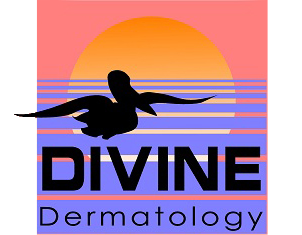Benefits of a Vitamin C Facial: A Brighter Path to Skin Health
Benefits of a Vitamin C Facial: A Brighter Path to Skin Health
Benefits of a Vitamin C Facial
There’s a reason why vitamin C is touted as a holy grail ingredient in the skincare industry: it works. With a multitude of benefits ranging from brightening the complexion to protecting against environmental stressors, vitamin C, THD ascorbate for example, is a powerhouse ingredient that can significantly enhance skin health. This article will explore the advantages of incorporating a vitamin C facial into your skincare routine, underlining its impact on achieving radiant, youthful skin.
Understanding Vitamin C: What is it and Why is it Important?
Vitamin C, also known as ascorbic acid, is a potent antioxidant that plays a vital role in maintaining skin health. It is necessary for the production of collagen, a protein that provides structure and elasticity to the skin. Additionally, vitamin C helps to combat damage caused by harmful free radicals and ultraviolet (UV) radiation, reducing the risk of premature skin aging (Pullar, Carr & Vissers, 2017)[^1^].
Although vitamin C is essential, the human body cannot produce it. Therefore, it needs to be obtained through diet or topical application. While consuming vitamin C-rich foods certainly contributes to overall skin health, topical application, such as in the form of a facial, allows for direct delivery to the skin, yielding more significant results (Al-Niaimi & Chiang, 2017)[^2^].
Vitamin C Facial: A Deep Dive
A vitamin C facial is a skincare treatment that incorporates vitamin C or its derivatives into the products used. These facials are designed to offer intense hydration, exfoliation, and antioxidant protection, ultimately aiming to rejuvenate the skin and improve its overall appearance. The specific steps involved in a vitamin C facial can vary, but often include cleansing, exfoliation, application of a vitamin C-infused mask or serum, and moisturizing.
Brightening Effects
One of the most notable benefits of a vitamin C facial is its ability to brighten the complexion. Vitamin C inhibits the enzyme tyrosinase, reducing the production of melanin – the pigment responsible for skin coloration. This mechanism helps to lighten dark spots, even out skin tone, and impart a radiant glow to the skin (Telang, 2013)[^3^].
Anti-Aging Benefits
Another significant advantage of vitamin C is its anti-aging effects. As an essential component of collagen synthesis, vitamin C can help to diminish the appearance of fine lines and wrinkles. Furthermore, its potent antioxidant properties counteract the damage caused by free radicals, preventing premature skin aging (Sarkar et al., 2013)[^4^].
Improved Hydration and Texture
Vitamin C also aids in enhancing the skin’s hydration and texture. As a mild exfoliant, it helps to remove dead skin cells, promoting smoother, more refined skin texture. Additionally, vitamin C has been shown to reduce water loss in the skin, helping to maintain optimal hydration levels (Pullar, Carr & Vissers, 2017)[^1^].
Protection Against Sun Damage
While vitamin C is not a sunscreen, its antioxidant properties can provide some protection against harmful UV rays. By neutralizing free radicals, vitamin C can help to mitigate the damage caused by sun exposure. However, it should not replace sunscreen but rather be used in conjunction with a broad-spectrum SPF for comprehensive sun protection (Oresajo et al., 2008)[^5^].
THD Ascorbate: A Superior Form of Vitamin C
While there are several forms of vitamin C used in skincare, not all are created equal. Tetrahexyldecyl Ascorbate (THD Ascorbate) is a vitamin C derivative that has been gaining popularity due to its superior
Understanding THD Ascorbate
THD Ascorbate is a stable, oil-soluble form of vitamin C that can penetrate the skin more effectively than other forms. Unlike water-soluble forms of vitamin C, such as ascorbic acid, THD Ascorbate does not degrade quickly when exposed to light and air. This stability ensures that the vitamin C retains its potency, allowing your skin to reap its full benefits (Pullar, Carr & Vissers, 2017)1.
THD Ascorbate in Vitamin C Facials
Incorporating THD Ascorbate into vitamin C facials allows for deep penetration into the skin, leading to enhanced benefits. Because THD Ascorbate can reach the deeper layers of the skin, it can promote collagen production more effectively, leading to improved skin firmness and reduction of fine lines and wrinkles. Moreover, due to its increased stability, THD Ascorbate is less likely to cause irritation, making it suitable for sensitive skin types (Pullar, Carr & Vissers, 2017)1.
Maximizing the Benefits of a Vitamin C Facial
While a vitamin C facial can offer significant benefits, it’s essential to follow a few guidelines to maximize its effects.
Regular Facials
Consistency is key when it comes to skincare. Regular vitamin C facials can help to maintain the health and appearance of your skin over time. Depending on your skin type and specific concerns, it’s generally recommended to have a professional facial once a month.
Use of Vitamin C at Home
Incorporate a vitamin C product into your daily skincare routine. This will enhance the benefits of the vitamin Cfacial and provide your skin with daily antioxidant protection. A vitamin C serum is often the best choice, as it’s highly concentrated and absorbs quickly into the skin.
Sun Protection
Always use a broad-spectrum sunscreen, even on cloudy days. UV radiation can cause significant damage to the skin, undermining the benefits of your vitamin C facial. By protecting your skin from the sun, you can help maintain the results of your facial and promote healthier skin.
Conclusion
A vitamin C facial can offer a multitude of benefits, including brightening the skin, reducing the signs of aging, improving hydration and texture, and offering some protection against sun damage. The use of superior forms of vitamin C, such as THD Ascorbate, can further enhance these benefits, leading to healthier, more radiant skin.
However, remember that a vitamin C facial is just one component of a comprehensive skincare routine. Regular facials, daily use of vitamin C products at home, and diligent sun protection are all essential for maintaining healthy, glowing skin.
References
-
Pullar, J. M., Carr, A. C., & Vissers, M. C. (2017). The roles of vitamin C in skin health. Nutrients, 9(8), 866.
-
Al-Niaimi, F., & Chiang, N. Y. Z. (2017). Topical vitamin C and the skin: mechanisms of action and clinical applications. The Journal of clinical and aesthetic dermatology, 10(7), 14.
-
Telang, P. S. (2013). Vitamin C in dermatology. Indian Dermatology Online Journal, 4(2), 143.
-
Sarkar, R., Arora, P., & Garg, K. (2013). Cosmeceuticals for Hyperpigmentation: What is Available?. Journal of cutaneous and aesthetic surgery, 6(1), 4–11.
-
Oresajo, C., Stephens, T., Hino, P. D., Law, R. M., Yatskayer, M., Foltis, P., … & Pillai, S. (2008). Protective effects of a topical antioxidant mixture containing vitamin C, ferulic acid, and phloretin against ultraviolet-induced photodamage in human skin. Journal of cosmetic dermatology, 7(4), 290-297.
Hopefully this article was helpful in your skincare journey. Welcome to Divine Dermatology, PLLC, your beacon for skin care in St. Petersburg, Florida. Under the skilled guidance of Carol Sims-Robertson, MD, our office celebrates all skin types and ages, curating personalized treatments that enhance your natural beauty.
From teens battling acne to adults seeking anti-aging remedies, we offer innovative solutions that cater to every person’s unique needs. At Divine Dermatology, PLLC, we believe in using our expertise so beauty transcends age and skin type. Trust us to transform your skin, elevating your confidence, and revealing the most beautiful you.
Click here to Schedule your Free Skin Evaluation Today or call us at (727) 528-0321. Embrace the Divine Dermatology difference – where your path to beauty begins.




